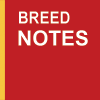ANTI-BSL CAMPAIGNERS in Australia have hit back at the proposed import ban on four breeds of so-called ‘dangerous dog’ put forward by the Australian Government.
Under planned legislation, the American Pit Bull Terrier, Tosa Inu, Fila, and Dogo Argentino would not be allowed to enter the country.
The Government established a special committee to undertake an investigation of the BSL matter and to receive submissions from interested parties accordingly. The Committee will then present its findings to the Canberra Government who will be guided by its findings before making a final decision on the law.
Linda Watson, Vice President of the Endangered Dog Breeds Association compiled a very concise and informative presentation to the Committee which outlines and underscores the failings and short-sightedness of BSL and the Government’s plans to adopt it.
The presentation appears here in its entirety, along with background explanation and comments from Linda Watson:
PRESENTATION
TO THE NATIONAL CONSULTATIVE COMMITTEE ON ANIMAL WELFARE (NCCAW)
– Canberra, April 8, 2003.
Regarding the Import Ban on the four breeds of dog; American
Pit Bull Terrier, Tosa Inu, Fila, and Dogo Argentino.
By Linda Watson – Vice President
Endangered Dog Breeds Association
EDBA
has been researching the Federal Ban on the importation of
four breeds of dogs, including the American Pit Bull Terrier
for some time and in particular since June 2002 when there
were indications unofficially that a review was underway.
Finally early this year, we became aware of and obtained a
copy of, a draft NCCAW report reviewing the current ban on
the importation into Australia of four dog breeds - American
Pit Bull Terrier, Japanese Tosa, Dogo Argentino and Fila Brasileiro.
This report generally agreed with our views but the recommendations,
to our dismay, bore no relation to the views of the body of
the report. Shortly after obtaining this report an invitation
to make a presentation to NCCAW was made to four members of
EDBA. One member made a written submission and Nick Trikilis,
Linda Watson and Dr Stephen Collier accepted the invitation
to travel to Canberra and make a present in person to NCCAW.
The presentation was to be at 2.00pm on Tuesday April 8.
The trip was not without dramas. Nick unfortunately had a
bad car accident on his way to Hobart airport for the first
leg of his trip to Canberra. A compound fracture of a leg,
a broken arm and ribs resulted. Sadly his journey to Canberra
ended at Hobart Hospital. Linda, waiting at Melbourne Airport
for Nick to arrive, departed by car to Canberra when advised
that Nick had been in an accident, had some injuries but was
otherwise OK. We were very disappointed that we had lost Nick’s
services as was Nick at missing his chance.
The meeting went very well. Dr Hugh Wirth was obliged to shake
our hands and we were introduced to the Committee. However
they were not introduced to us. There were 22 people around
a huge table.
Among those present relevant to Victoria was Professor Ivan
Caple, the Dean of the Veterinary Faculty at Melbourne University
and Dr Stephen Tate of the Bureau of Animal Welfare, Victoria.
We were given a brief description of the review process. NCCAW
would reach agreement on their position and then recommend
action to the responsible Minister (Minister for Agriculture,
Warren Truss). The Minister has to consult the States, but
probably not get their agreement, and get the Customs Minister
to implement any policy changes, after cabinet approves the
change.
We expanded on the points below, commencing at approximately
1.50pm and exiting at 3.00pm. This included question time
with about 5 asking questions that Stephen handled easily.
Of course we thought of things that should have been said
as soon as we were out of the meeting. Both Stephen and I
had the feeling that a lot of them were on side and wanted
changes.
Whether or not our presentation had any impact time will tell.
We did our best and even though we had doubts as to the integrity
of the review we felt that we must at least try. Nothing ventured
nothing gained.
Points covered :
1. Justification for initial ban
Justification of ban based upon supposed overseas experience.
Not reliable, and not relevant to Australia, as no serious
APBT incidents at that time.
2. Fears have been groundless. Some APBT attacks have occurred,
but their frequency has refuted the predictions of the proponents
of the ban. About 10 human deaths have occurred since the
ban, none by APBTs.
3. Statistics on bites: NSW, Qld, Vic, NZ
NSW: Dept Local Govt data over 4 years - bull terrier types
8% of attacks, but likely to be on animals, not people, 3-5th
breed rank;
Queensland: data from 19 Councils – 8 APBT attacks out
of 750 total attacks;
Victoria: data for 3 years by Bureau of Animal Welfare –
APBT 21 of 413 attacks = 5%, 14th breed rank;
New Zealand: National Government data – over 3 years
APBT 3.9% of attacks, 7th breed rank.
4. Justification for state laws
The only formal justification given by the states of Queensland
and Victoria for breed specific laws has been the Commonwealth
Import ban on the breeds concerned. This has been very explicit
in Queensland. Fatuous statements by Ministers in Parliaments,
but no justification based on evidence or reasoned argument.
5. Injustices in Qld
Many innocent and friendly dogs have been killed. Some have
been APBTs, some have been dogs their owners have not been
able to prove are not APBTs or crosses. Onus to prove the
unprovable on those charges, this being a violation of natural
justice.
6. Vague and unworkable
The Queensland laws are vague in that they restrict APBTs
and their crosses to an unspecified proportion of ancestry,
yet do not define these categories. Owners cannot know if
their dogs are restricted or not. Breed identity is determined
by ACOs assessments, and these are hopelessly flawed, yet
virtually unchallengeable.
7. Prevents return of nationals
The breed import ban has prevented at least one Australian
family from moving home from overseas, as they cannot bring
their APBT dogs. The Sheehan family currently in America is
an example.
8. World Trade Organisation violations:
The breed import ban violates the WTO obligations, as argued
by Agriculture Minister, Warren Truss in relation to a proposed
import ban on "Munchkin" cats. It would also compromise
a free trade agreement with the USA. Australians can sell
APBTs within the country and export them to America, but Americans
cannot export the dogs to Australia.
9. Unworthy law produced bad government
The Commonwealth breed import ban is bad law. It was ill-considered,
with no justification based upon either reasoned argument
or evidence, and it lacked a strategy to affect any aspects
of dog ownership and control.
It had not claimed impact upon public safety, and no ability
to enhance public safety. Above all, it has led to harsh,
vague and discriminatory laws in the states which are evil
in their administration and intention.
Such law is unworthy of elected governments in liberal democracies
like ours, and brings law itself, governments, the courts,
and local officials into public contempt and even hatred.












